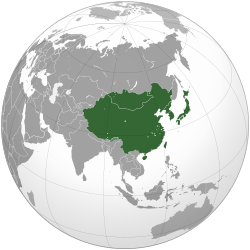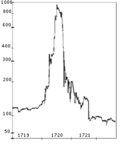
Back بوابة:الاقتصاد Arabic Portal:İqtisadiyyat Azerbaijani প্রবেশদ্বার:অর্থনীতি Bengali/Bangla Portal:Ekonomija BS Portal:Economia Catalan دەروازە:ئابووری CKB Portál:Ekonomie Czech Portal:Wirtschaft German Πύλη:Οικονομία Greek Portal:Economía Spanish
The Business and Economics Portal  Business is the practice of making one's living or making money by producing or buying and selling products (such as goods and services). It is also "any activity or enterprise entered into for profit." A business entity is not necessarily separate from the owner and the creditors can hold the owner liable for debts the business has acquired except for limited liability company. The taxation system for businesses is different from that of the corporates. A business structure does not allow for corporate tax rates. The proprietor is personally taxed on all income from the business. A distinction is made in law and public offices between the term business and a company (such as a corporation or cooperative). Colloquially, the terms are used interchangeably. (Full article...) Economics (/ˌɛkəˈnɒmɪks, ˌiːkə-/) is a behavioral science that studies the production, distribution, and consumption of goods and services. Economics focuses on the behaviour and interactions of economic agents and how economies work. Microeconomics analyses what is viewed as basic elements within economies, including individual agents and markets, their interactions, and the outcomes of interactions. Individual agents may include, for example, households, firms, buyers, and sellers. Macroeconomics analyses economies as systems where production, distribution, consumption, savings, and investment expenditure interact; and the factors of production affecting them, such as: labour, capital, land, and enterprise, inflation, economic growth, and public policies that impact these elements. It also seeks to analyse and describe the global economy. (Full article...) Selected articleActuaries are business professionals who deal with the financial impact of risk and uncertainty. Actuaries are highly trained experts with a deep understanding of financial security systems, their reasons for being, their complexity, their mathematics, and the way they work. They evaluate the likelihood of future events and design creative ways to quantify the contingent outcomes in order to minimize losses associated with uncertain undesirable events. These risks can impact both sides of the balance sheet and require asset management, liability management, and valuation skills. It takes a combination of strong analytical skills, business knowledge and understanding of both human behavior and the vagaries of information systems to design and manage programs that control risk. Actuaries work in a number of insurance disciplines, which may be classified as life, health, pensions, annuities, and asset management, social welfare programs, property, casualty, liability, general insurance and reinsurance. Selected image
Selected economy The economy of East Asia comprises 1.6 billion people (20% of the world population) living in six different countries and regions. The region includes several of the world's largest and most prosperous economies: Taiwan, Japan, South Korea, China, Hong Kong, and Macau. It is home to some of the most economically dynamic places in the world, being the site of some of the world's most extended modern economic booms, including the Taiwan miracle (1950–present) in Taiwan, Miracle on the Han River (1974–present) in South Korea, Japanese economic miracle (1950–1990) and the Chinese economic miracle (1983–2010) in China. East Asia's economic prominence has grown significantly in recent years, increasing its importance and influence in Asia and the world economy. Recent developments have led to an expanding cosmopolitan middle class. East Asian countries are vital contributors to central global communications and trade networks, developing relations with other nations, including those of the Western world, making them a significant contributor to the global economy. The region's economic success was referred to as "An East Asian Renaissance" by the World Bank in 2007. (Full article...) Selected quote"But when the division of labour first began to take place, this power of exchanging must frequently have been very much clogged and embarrassed in its operations. One man, we shall suppose, has more of a certain commodity than he himself has occasion for, while another has less. The former consequently would be glad to dispose of, and the latter to purchase, a part of this superfluity. But if this latter should chance to have nothing that the former stands in need of, no exchange can be made between them. The butcher has more meat in his shop than he himself can consume, and the brewer and the baker would each of them be willing to purchase a part of it. But they have nothing to offer in exchange, except the different productions of their respective trades, and the butcher is already provided with all the bread and beer which he has immediate occasion for. No exchange can, in this case, be made between them. He cannot be their merchant, nor they his customers; and they are all of them thus mutually less serviceable to one another. In order to avoid the inconveniency of such situations, every prudent man in every period of society, after the first establishment of the division of labour, must naturally have endeavoured to manage his affairs in such a manner, as to have at all times by him, besides the peculiar produce of his own industry, a certain quantity of some one commodity or other, such as he imagined few people would be likely to refuse in exchange for the produce of their industry."
TopicsRelated WikiProjectsDid you know (auto-generated) -
On this day in business history
General imagesThe following are images from various business-related articles on Wikipedia.
More did you know
Business news
SubcategoriesRelated portals
Things you can doUrgent and important articles are bold
WikimediaThe following Wikimedia Foundation sister projects provide more on this subject:
SourcesDiscover Wikipedia using portals |
© MMXXIII Rich X Search. We shall prevail. All rights reserved. Rich X Search








































